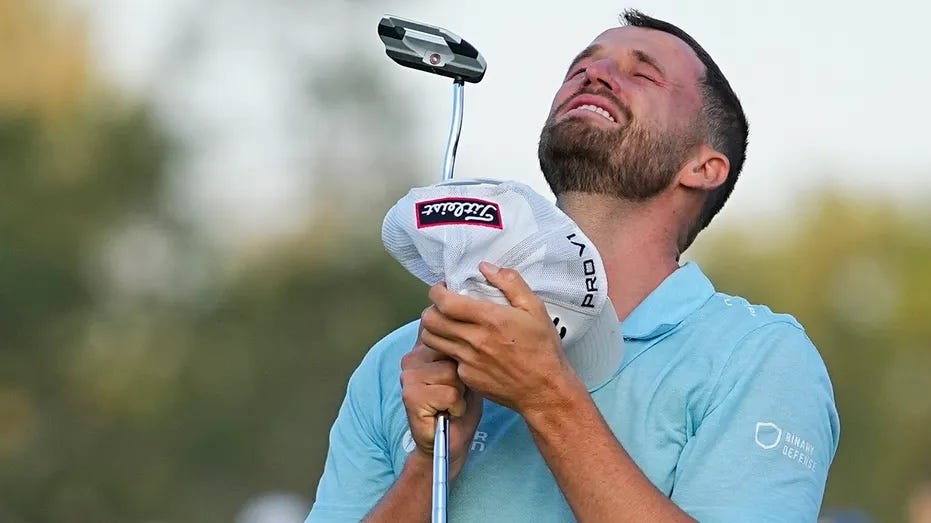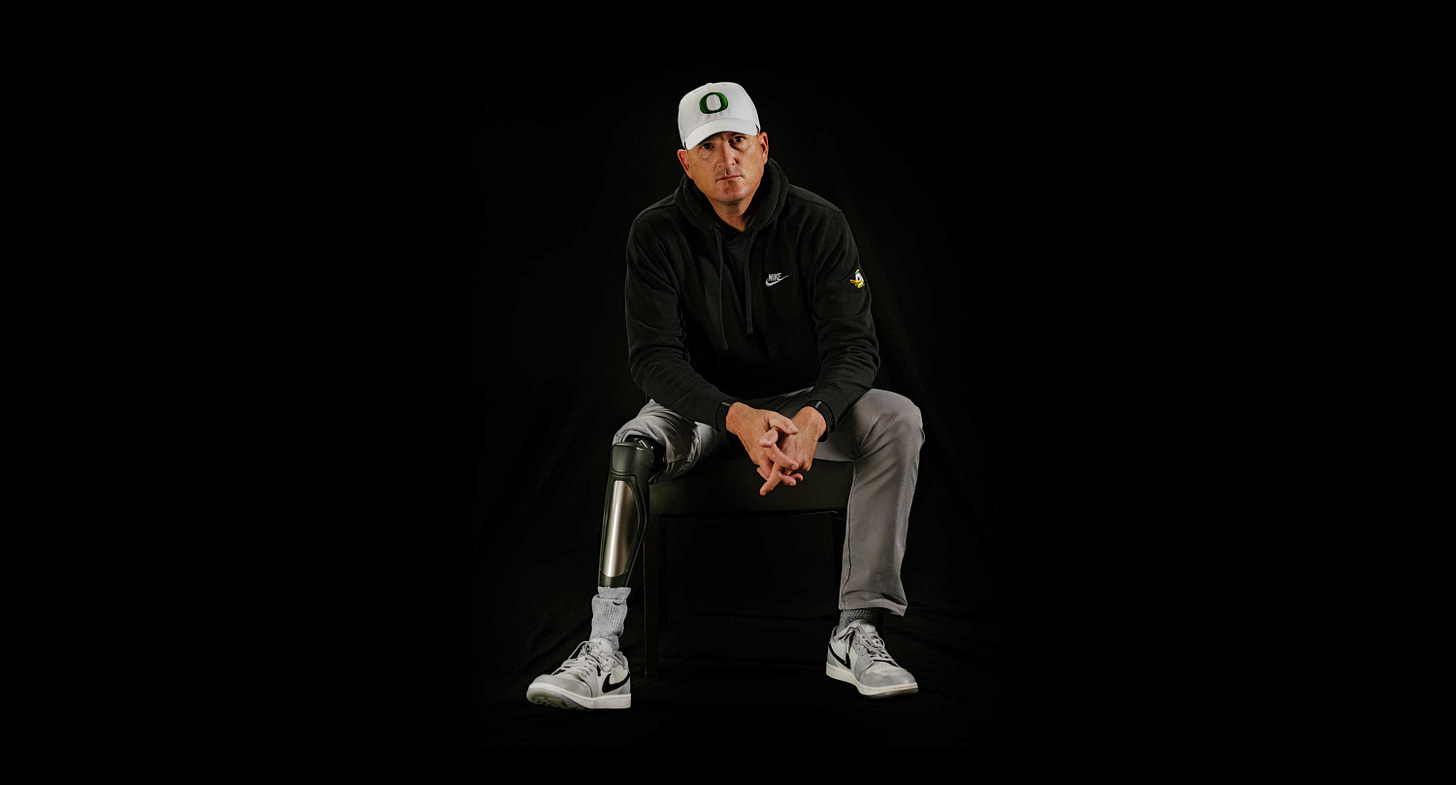Canzano: Casey Martin should take a bow in Wyndham Clark story
Oregon golfer won the US Open.
Casey Martin was a senior at Stanford when Tiger Woods walked through the door as a freshman. As an ice breaker, Martin and fellow Cardinal golfer Notah Begay invited the teenager to play a round of golf with them at nearby Sharon Heights Golf and Country Club.
Tough course.
Narrow fairways.
The greens had just been aerated, too, so the putting was sketchy. But Martin, Begay and Woods played 18 unforgettable holes that day. On Tuesday, I asked Martin what that introductory experience was like.
The now-University of Oregon golf coach is fresh off watching one of his Ducks’ pupils, Wyndham Clark, win the US Open. I’ll get to that remarkable story in a minute. But first, I have to tell you about Martin’s first afternoon with Tiger.
“Notah and I shot even par,” Martin said.
Woods?
“He didn’t miss a green.”
Every drive was true. Every approach landed exactly where he aimed. Tiger struggled putting because of the punched greens, but at the end of the round he posted a score of 68.
“Notah look at me and I looked at him and we’re like ‘What did we just see?’” Martin told me. “He hit every shot perfect. For an 18-year-old kid, it wasn’t just perfect, it was so far and so dynamic, it was just incredible.”
Martin, now 51, is the men’s golf coach at UO. The Ducks won the national title in 2016. Martin had that troublesome right leg amputated in 2021. He had tears in his eyes watching Clark play the final hole of the US Open, holding off off Rory McElroy to win the major.
Said Martin: “I know all that has gone on behind it.”
Clark started his college career at Oklahoma State. He lost his mother to breast cancer during his freshman season. His college coach also left the program. Suddenly, Clark looked around and was adrift.
Martin downplays his role in helping Clark find his footing in college at Oregon. The coach says things such as “I just got to watch it and hoist the trophy.” But we all know there’s far more to coaching young golfers than working on a swing and shining up the trophies. What Clark got from Martin was an environment where he could relax, exhale, grieve, play golf and find his confidence again.
Clark’s caddie, John Ellis, was along for the ride, too. He plays a vital role in Clark’s story. Ellis was then working as a UO assistant. Also, a Eugene couple, Jeff and Jamie Gaskill, took Clark in and housed him along with their own three children. They offered him family structure, home-cooked meals and parental oversight.
“He got a lot of love from the Gaskills and he just blossomed,” Martin said. “It wasn’t perfect because he was still struggling, but he got the love he needed.”
Clark is now a US Open winner with two career PGA Tour victories. He’s a terrific story. But Martin remembers Clark as a young golfer at Oregon who had all the tools to compete on the biggest golf stage — except one.
“He’s freakishly long and yet he’s got a short game that can rival anybody,” Martin told me. “It’s pretty tantalizing when you’re a coach watching it going ‘This kid has got it all.’ I think the think he was lacking was emotional maturity. He’s been through a lot. He’s very intense. He would beat himself up.”
Clark wasn’t at all like Tiger Woods, who Martin said “was just better than everyone at everything” upon arrival in college.
Tiger stormed through the door as a freshman at Stanford mentally and physically prepared to dominate. Martin and Begay saw it on display in that blistering first round. The upperclassmen realized they were essentially playing alongside the burgeoning Michael Jordan of golf.
Clark had loads of talent as a young player, too, but needed to evolve as a person and competitor. For a time, lots of people wondered if Clark would make it as a professional.
“My role is small,” Martin said.
Sorry, but I don’t think so.
Martin spent the first few days after the US Open on the road. The current golf recruiting window opened on June 15. He not only has a national title to sell, but some individual proof of performance, too.
“I do kind of drop the hints that way, ‘Did you see the US Open?’” Martin joked. “You don’t want to be over the top, but kids know that. It gives you some measure of credibility. A kid can say ‘Wyndham Clark went to Oregon. If he did it, I can do it, maybe.’”
I appreciate all who support, subscribe and share this independent endeavor. If you haven’t already — please consider subscribing or gifting a subscription to a family member or friend. You may also “donate” a subscription to someone on a fixed budget below.




Wonderful interview yesterday with a nice follow-up today. Casey is a treasure for the University of Oregon. Thanks again for another well written column.
At the risk of minimizing the precision of your writing, another Canzano masterpiece. Thanks for sharing.